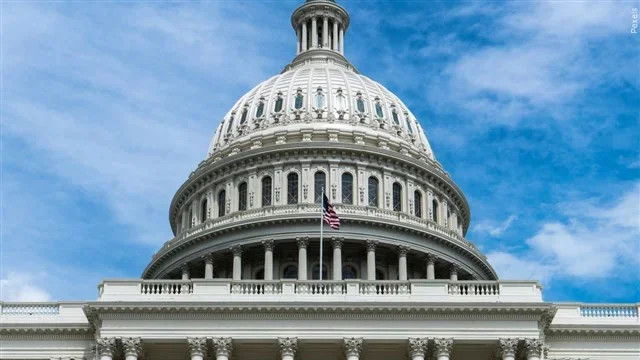Wyden, colleagues urge bakers to stop adding unneeded sesame to baked goods, protect those with allergies

WASHINGTON (KTVZ) -- Sen. Ron Wyden, D-Ore., and Reps. Doris Matsui, D-Calif., and Patrick McHenry, R-N.C., led a letter Tuesday urging bakers to stop unnecessarily adding sesame to baked goods and protect consumers with sesame allergies.
“The dangerous practice of adding sesame to baked goods that have not previously contained the ingredient, often without notice, undermines the trust that people with food allergies place in the food industry,” the legislators wrote to the American Bakers Association.
“Instead of acting to protect consumers, manufacturers are adding trace amounts of sesame to their baking products since the passage of the FASTER Act. It appears that this is being done to avoid the costs associated with the processes and systems controls necessary to ensure safe baking practices,” the legislators continued.
Sesame allergies impact more than 1.5 million Americans, half of which are children, and reactions can be serious and life threatening. To improve the health and safety of Americans living with food allergies, Congress passed the FASTER Act which requires baking manufacturers to appropriately label products that contain sesame.
After the FASTER Act was signed into law, the American Bakers Association (ABA) publicly agreed that it should not be a problem for bakers to make production changes to handle sesame as an allergen in their bakeries. Today, families are struggling to find products without sesame as previously trusted restaurants and brands have engaged in the dangerous practice of adding sesame. These actions undercut the purpose and intent of the FASTER Act and put the lives of consumers at risk.
“It is imperative that the baking industry take immediate action to address this issue. The health and safety of consumers should always be a top priority. The baking industry has a responsibility to protect the public, especially those with food allergies, and the intentional new addition of a known allergen to products goes against this responsibility. It’s time to act to rectify the situation,” the legislators concluded their letter.
U.S. Senators Richard Blumenthal, D-Conn., and Chris Murphy, D-Conn., and U.S. Representatives Debbie Dingell, D-Mich., Dean Phillips, D-Minn., and Ro Khanna, D-Calif., cosigned the letter.
The letter is supported by the Campaign Urging Research for Eosinophilic Diseases, Asthma and Allergy Foundation of America, Food Allergy Research and Education, The American Academy of Allergy, Asthma & Immunology, The Elijah-Alavi Foundation Inc., AllergyStrong, The Allergy Advocacy Association, The American Partnership for Eosinophilic Disorders, The FPIES Foundation, The American College of Allergy, Asthma and Immunology, International FPIES Association, Food Allergy & Anaphylaxis Connection Team, Center for Science in the Public Interest, Food Allergy Science Initiative, and the Allergy & Asthma Network.
“FARE applauds Chairman Wyden, the authors of the FASTER Act, and our congressional food allergy supporters for holding members of the American Bakers Association accountable for intentionally adding sesame to their products. Rather than doing the right thing in the spirit of the FASTER Act, their actions are instead potentially harming the more than 1.5 million Americans allergic to sesame,” said Sung Poblete, RN, PhD, and CEO of Food Allergy Research and Education (FARE).
“We trust these companies every day to keep our food safe, and bakeries are violating that trust by adding allergens as a shortcut to effective quality control. Companies have a legal and moral obligation to reduce risks, and this practice does just the opposite,” said Sarah Sorscher, Director of Regulatory Affairs, Center for Science in the Public Interest (CSPI).
“The Asthma and Allergy Foundation of America (AAFA) was pleased to support the FASTER Act in hopes of improving the safety of the food supply for people with sesame allergy. Sesame allergy is one of the top nine most common food allergies in the U.S. Consumers with sesame allergy are at risk for severe food allergic reactions that can be potentially life-threatening. That’s why the response of the baking industry to the FASTER Act is so disappointing.
"Instead of complying with the spirit of the law and making foods safer, many bakers are now adding sesame to foods – meaning those foods are not safe for people with sesame allergy. We applaud those bakers that have taken steps to comply with the law and thank Senator Wyden and his colleagues for calling on the American Bakers Association to encourage all its members to do the same,” said Kenneth Mendez, President and CEO of the Asthma and Allergy Foundation of America.
The text of the letter is here.
